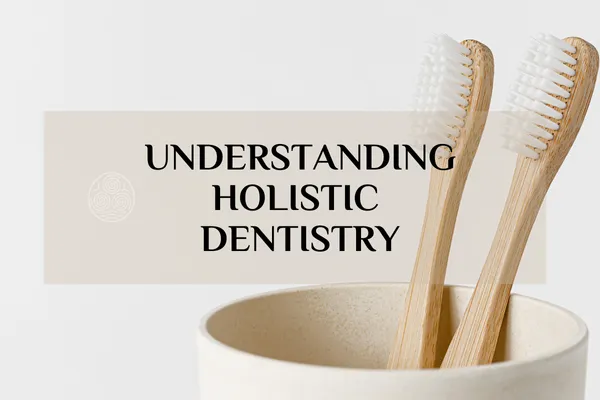
Holistic Dentistry vs Conventional Dentistry: What’s the difference?
Holistic Dentistry vs Conventional Dentistry: What’s the difference?
When it comes to oral health, we have a choice between two distinct approaches: conventional dentistry and holistic dentistry. Both aim to ensure healthy teeth and gums, but they differ dramatically in their philosophies and practices. Let’s delve into the differences between holistic dentistry and conventional dentistry, shedding light on what sets them apart and helping you make an informed decision about your dental care.
Conventional Dentistry
Conventional dentistry, also known as traditional or mainstream dentistry, is the most widely practiced approach. It focuses primarily on diagnosing, preventing, and treating dental diseases and issues through established scientific methods. Here are key points of conventional dentistry:
Use of Conventional Treatments: Procedures such as fluoride treatments and dental X-rays are common in conventional dentistry. These methods are designed to prevent and detect dental problems.
Focus on Symptom Relief: Conventional dentistry often addresses symptoms and provides immediate relief from dental discomfort or pain. It may not always address underlying causes.
Materials and Safety: Conventional dentistry typically uses materials like mercury amalgam fillings, which are unsafe, studies have shown these compounds can contributeto a whole host of problems in the body over time.
Holistic Dentistry
Holistic dentistry, also known as biological or integrative dentistry, takes a more holistic and patient-cantered approach to dental care. It views oral health as interconnected with overall health and seeks to promote health wellness beyond just treating symptoms. Here are key points of holistic dentistry:
Whole-Person Approach: Holistic dentistry considers the patient’s overall well-being, taking into account factors like nutrition, lifestyle, and mental and emotional health. It aims to identify and address the root causes of dental issues.
Minimally Invasive Techniques: Holistic dentists often prefer minimally invasive treatments, avoiding the use of mercury-based fillings and minimizing X-ray exposure. They prioritise biocompatible materials.
Preventive Measures: Holistic dentistry places a strong emphasis on prevention. This includes educating patients about proper nutrition, oral hygiene, and lifestyle choices that support dental and overall health.
Patient Education: Holistic dentistry focuses on educating patients about the impact of nutrition, stress, and lifestyle on oral health, empowering them to make informed choices.

What Are the Differences Between Holistic and Conventional Dentistry.
Holistic dentistry and conventional dentistry are very different in their approaches to oral healthcare. Understanding their key differences can help you make a more informed choice about your dental care. Here, are the fundamental differences between these two approaches:
Treatment Philosophy
Holistic Dentistry: Holistic dentists view oral health as interconnected with overall well-being. They focus on treating the root causes of dental issues and emphasize preventive measures using biocompatible materials and minimally invasive techniques.
Conventional Dentistry: Conventional dentists primarily address oral health problems, focusing on symptom management and traditional treatments. They may not always consider the broader impact on the patient’s overall health.
Focus on Preventive Measures
Holistic Dentistry: Holistic dentists emphasize preventive care, including proper nutrition, oral hygiene, and lifestyle choices to maintain oral and overall health.
Conventional Dentistry: Conventional dentists also stress preventive care but may place a stronger emphasis on treatments and interventions when problems arise.
Biological Dentistry
Holistic Dentistry: Some holistic dentists practice biological dentistry, which involves considering the impact of dental procedures on the entire body. They may employ alternative therapies and natural remedies.
Conventional Dentistry: Conventional dentistry follows established treatment protocols and may not incorporate alternative therapies or holistic approaches.
It’s your choice:
The choice between holistic dentistry and conventional dentistry ultimately depends on your personal core values and your unique individual requirements. Regardless of your choice, regular dental check-ups and preventive care should remain a top priority for maintaining excellent oral health. Remember that your dental journey is a personal one, and it’s important that you find the right dentist who aligns with your core values is key to achieving optimal oral health.
